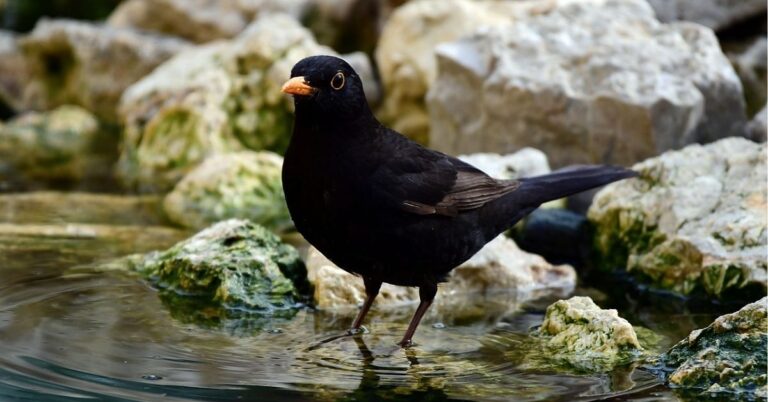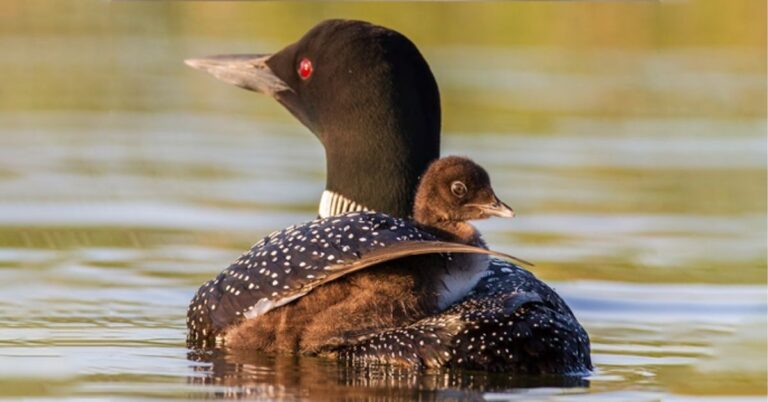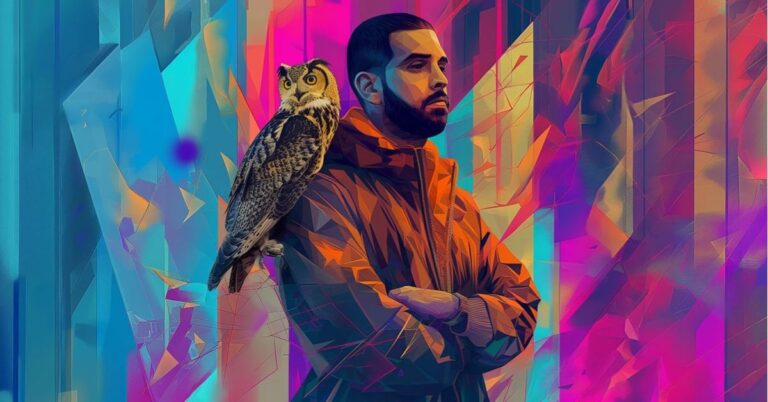Pelican Symbolism & Spiritual Meaning | Spirit, Totem & Power Animal
A pelican glides through the air as the sun sets and lights up the waves. This bird is special; Pelican Symbolism represents wisdom and abundance and has fascinated many cultures. With its unique beak and shape, the pelican is not just a sea fisherman but also a symbol of deeper meanings.
In Native American stories and modern tattoos, pelicans represent nurturing, selflessness, and community, appealing to those who look for guidance from nature. By exploring pelicans’ symbolism and spiritual meaning, we enter a realm where art and intuition connect, and these amazing birds become powerful totems.
Pelican Symbolism and Spiritual Meaning
What do pelicans symbolize? Pelican symbolism goes beyond its looks to include themes of resilience, community, and restoration. Its striking appearance, graceful gliding over water, and skilful diving for fish show its ability to adapt to environmental challenges.
What does it mean when a pelican crosses your path? Pelicans also represent selflessness and nurturing, their throat pouch reminds us that we can share abundance, which is important in ecosystems where cooperation is essential for survival.

Pelicans are closely linked to conservation efforts and success in raising awareness. After the DDT ban in 1972, pelicans became symbols of hope and renewal, showing what can happen when we work together for ecological protection.
Their recovery indicates better environmental conditions and highlights our shared responsibility to protect fragile ecosystems.
Pelican Native American Symbolism
The pelican is a striking bird known for its graceful flight and deep symbolism in Native American culture. It is admired for its unique traits and also for its role in the ecosystem. Many tribes view the pelican as a healer or medicine bird, symbolizing well-being and balance in nature.
Its ability to dive for food reflects the search for knowledge and inner wisdom. While specific tribal beliefs about pelicans vary, their connection to weather shows respect for nature’s power. Pelicans glide over rough waters before storms, symbolizing adaptability in chaos.
They remind Indigenous peoples of their strong ties to the land and sky. As coastal guardians, pelicans sense climate changes and represent resilience in a changing world.
Pelican Celtic Symbolism
In Celtic symbolism, the pelican is a strong symbol linked to the sea and its gods. It is associated with Mannanan Mac Lir, the Irish god who guides and protects sailors in rough waters. The pelican represents safe passage through storms.
While many might think of seagulls as coastal birds, the pelican has a deeper meaning, representing guardianship and the mystery of ocean life.
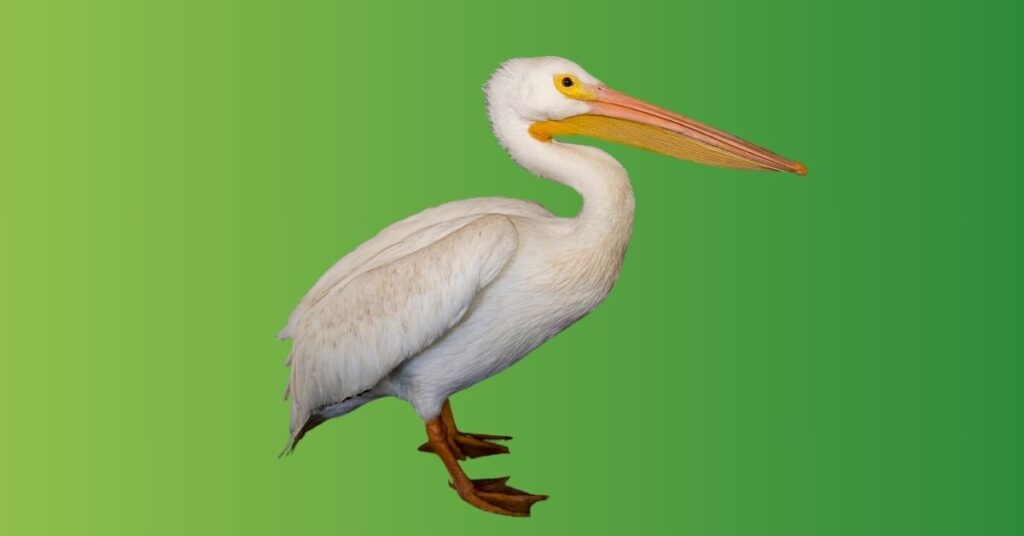
Pelicans also have special significance in heraldry, symbolizing love and nurturing, similar to motherhood. A pelican resting or flying can remind us of safety in chaos.
It feeds its young from its own body, highlighting the sacrifices that come with love and companionship. This duality shows that true strength comes from both power and vulnerability.
Pelican Christian Symbolism
In medieval art, pelicans were shown feeding their chicks with what was thought to be their blood, representing Christ’s sacrifice. This powerful image reminds us that true love often involves giving up something important, prompting us to consider how we can be selfless in our own lives.
The pelican’s nurturing behaviour also reflects a deeper message about caring for creation and showing compassion in the Christian faith. Just as a mother pelican gives her life for her young, followers are encouraged to invest in loving relationships within their communities.
By spiritually viewing this simple bird, we are inspired to reflect on how we care for others, which may require us to give up our comforts to help those around us. This echoes the core teachings of Jesus about love and sacrifice.
Pelicans in Dreams
Dreaming of a pelican reminds us of the importance of timing and instinct in our lives. Like the pelican’s careful dives, we often need to take risks and trust ourselves.
This dream encourages you to see fear as a chance to grow and to push past doubts that might stop you from seizing new opportunities. As the pelican turns risks into rewards, facing challenges can lead to unexpected benefits.

Seeing a pelican resting on land suggests the need for a break. Rest is not just a pause; it is a vital part of moving forward. In our busy lives, we often ignore these quiet moments, which are important for reflection and preparation.
When things slow down, use that time to recharge and gather strength for what’s next instead of worrying about being inactive.
Pelican Encounters and Omens
Pelicans are interesting animals that make us think about grace and clumsiness. When they fly smoothly, they show freedom and remind us that everyone has moments when they excel in their passions.
When they are on the ground, their awkwardness reminds us that even the most majestic creatures have flaws. This contrast encourages us to accept our strengths and weaknesses and thrive in places that appreciate our unique traits.
A pelican trying to steal your lunch symbolizes how some people and situations can drain our energy. Just like this bird, there are things in our lives that can take away our enthusiasm and resources if we let them.
We wonder why we put so much effort into activities or relationships that don’t bring us joy or appreciation. By learning to set boundaries, we can focus our energy on things that uplift us, like choosing where to cast a fishing net, which can lead to a good catch or an empty haul.
Pelicans in Mythology & Folklore
Pelicans are not commonly found in mythology and folklore but still shape cultural identity. Because of how they feed their young, they are often seen as symbols of self-sacrifice and care.
In some traditions, they are compared to Christ, showing devotion by feeding their chicks with their flesh. This connection between their natural behaviour and the spiritual meaning of pelicans gives us a unique understanding of these birds.
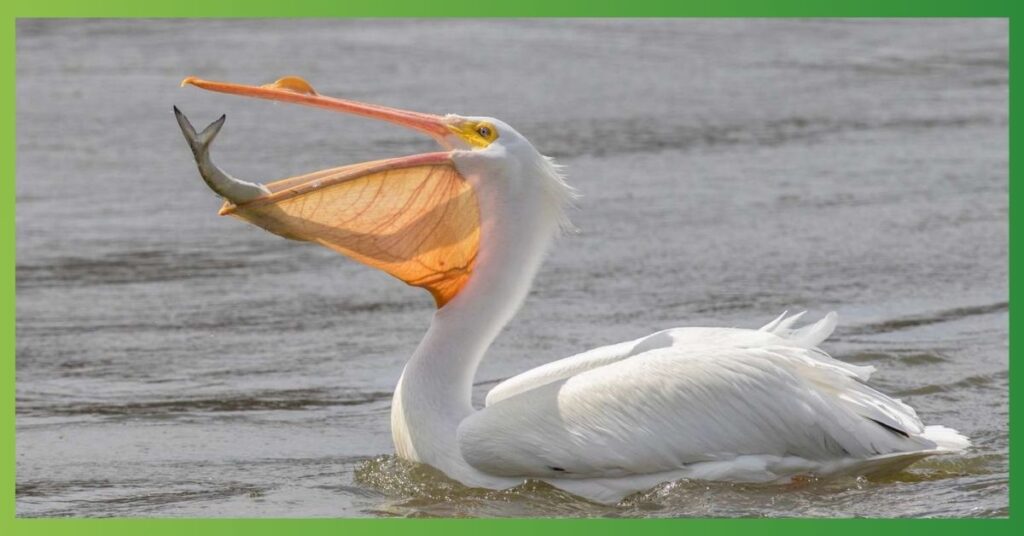
In Aboriginal folklore, pelicans have a more significant role and are considered sacred by various tribes. While specific stories may be hard to find, themes like creation myths and the bird’s role in ecological balance reflect a deep spirituality and the connection of all life.
For these communities, pelicans represent survival, a sense of community, and respect for nature’s resources, strengthening human bonds.
Pelicans in Native American Mythology
In Native American mythology, the pelican is more than just a skilled fish catcher; it is a wise mentor who helps others find abundance. The Siuslaw story shows the importance of working together and sharing knowledge, demonstrating how nature’s interdependence can create strong communities.
The seagull’s change from living in rivers to navigating the ocean reflects humanity’s journey of adapting to change. This myth reminds us that we sometimes need to explore new areas to discover more resources and opportunities.
Pelicans in Greek Mythology
In the touching story of Alcyone and Ceyx, seabirds symbolize more than just their physical forms. When Alcyone mourned her lover’s death, she became a kingfisher, a bird linked to calm seas. This change shows her deep sorrow and the gods’ wish to bring her peace. It honors her deep love.
The myth also shows how weak humans are compared to divine power. Ceyx’s death reveals pride and vulnerability; he tries to imitate divine love without understanding its seriousness.
Pelican Spirit Animal
The pelican spirit animal represents resilience and authenticity. It encourages people to embrace their uniqueness and face life with courage. Those who follow the pelican often set trends and inspire others with their boldness. By challenging norms, they create their paths and help others do the same, fostering a creative community.

Pelican spiritual meaning shows strong determination and grace. They remind us that setbacks are lessons, and each challenge is an opportunity to rise. This bravery is not just about big actions; it also appears in everyday choices, like speaking one’s truth or following unique interests without fear of judgment.
Pelican Totem Animal
What does pelican animal totem represents? The pelican totem represents more than safe passage; it stands for nurturing and community. People connected to this totem often take on roles that focus on protection and guidance. They might ensure friends have a safe ride home or plan family gatherings in familiar places.
This need for stability helps them navigate their lives and create safe spaces for others, making every gathering a warm and supportive environment.
Those with the pelican spirit are sensitive to their surroundings. They can sense when someone feels lost and prioritize the emotional safety of their loved ones. These guardians thrive in organized settings where they can establish routines or rituals that build trust and security.
Pelican Power Animal
Mockingbird represents playfulness and curiosity. It is your power animal, you will gain confidence. But connecting with the pelican power animal can bring abundance and positivity. This gentle bird, often seen gliding over water, represents relaxed confidence and attraction.
When you embrace the pelican’s spirit, you invite good fortune into your life. People who show calm confidence are more likely to attract opportunities and blessings, proving that what you expect is what you get.
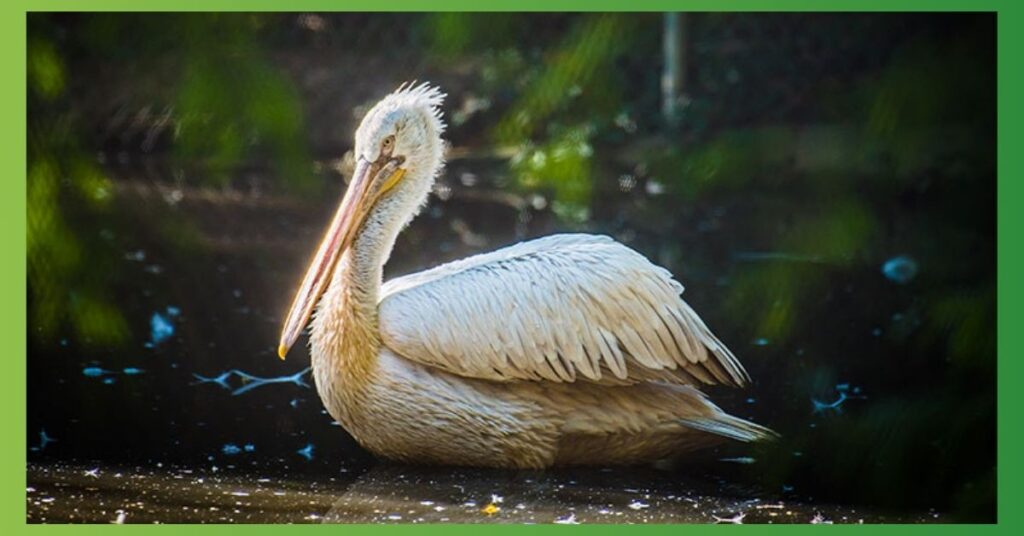
The pelican is a guiding light for those facing big life choices or uncertainties. Its ability to find food from above symbolizes clarity and foresight, reminding us to trust our instincts when making decisions.
By aligning with this power animal, you can develop a positive mindset that opens up fulfilling paths with great outcomes. Embracing the pelican encourages us to be hopeful and actively create our luck through thoughtful choices and a positive view of life’s possibilities.
Pelican Tattoo Meaning
A pelican tattoo has many meaningful interpretations for those who choose it. Pelicans are known for their ability to catch fish and feed their young, representing determination and selflessness.
They symbolize the lengths we go to for our loved ones, highlighting sacrifice and protection in relationships. A pelican tattoo can remind wearers of their strength as caregivers and encourage them to nurture others.
Conclusion
Pelican Symbolism embodies resilience and tenacity, showcasing remarkable adaptations that allow them to thrive in various environments. Their impressive diving skills and ability to recover from near extinction testify to nature’s strength and the importance of conservation efforts.
As we continue to learn about these fascinating birds, we are reminded of the delicate balance within ecosystems and our role in protecting them. Let us be inspired by the pelican’s audacity to embrace life’s challenges and strive for a sustainable future for all wildlife. Together, we can ensure these magnificent creatures continue soaring for generations.
FAQs
What does the Pelican Symbolize in Alchemy?
In alchemy, the pelican symbolizes transformation and sacrifice, drawing parallels to Christ’s redemptive act. The imagery of the pelican feeding its young with its blood serves as a powerful metaphor for self-sacrifice and the nourishment of spiritual growth.
What does the Black Pelican Symbolize?
The black pelican is often seen as a powerful symbol of resilience and guidance in adversity. In many cultures, this bird represents the ability to navigate through chaos and uncertainty, much like how it led sailors through treacherous conditions toward safety.
What is a Pelican in the Bible?
In the Bible, the pelican is mentioned as one of the unclean birds, which means it was considered unsuitable for consumption according to Mosaic law. Specifically, references can be found in Leviticus 11:18 and Deuteronomy 14:17, where various birds are listed that the Israelites were forbidden to eat.


